
It is with heavy hearts that the family of Sandy Davis announce the news of her passing on October 21, 2024, in Houston, Texas.
Sandra McCaig was born in Massachusetts and raised in Nebraska, the daughter of a Methodist minister/theologian and teacher/musician. From an early age, she displayed an independent, precocious nature, an insatiable curiosity and appreciation for the world and its people, and a natural affinity for music and academics.
Her love and aptitude for music was obvious from an early age. She started piano at 6, started playing for her father’s church services at age 11, and continued accompanying others for decades. She started flute in 6th grade and played in bands into adulthood. Above all else, she loved to sing, and after joining her mother’s choir at age 10, she continued to sing throughout her life, participating in choirs, choruses, musical theater, and individual recitals. When it came to music, Sandy Davis was not a passive observer; she wanted to be completely immersed and enjoyed performance above all else.
Her academic interests were diverse. Though she started college in piano and voice, she was deeply fascinated by science, particularly physics. She added numerous science and math courses to her plate, switched majors and graduated from Nebraska Wesleyan with a bachelor’s in Physics (the first woman there to do so), a minor in English and many hours of voice and piano and music theory. She prepared for her senior voice recital while working nights as a “moonwatcher” for Sputnik.
Influenced by her parent’s appreciation of other cultures and countries, and wanting to expand her horizons from small town Nebraska, she sailed halfway around the world for the island of Borneo. There she taught English literature, composition, and music appreciation at a Chinese high school in Sibu, Sarawak, and then ran a girl’s hostel upriver in indigenous Iban territory. She learned Mandarin, loved and respected her students, and was remembered by them for inspiring and cultivating a love of literature and music. She met Jack Davis, who was also teaching in Sarawak, and they married in Kapit in 1963. After studying Southeast Asian culture and languages at the University of Hawaii in Manoa, they headed back to Asia, teaching and building schools for the Tom Dooley foundation at a small rug-making village not far from Mount Everest’s base camp in Nepal. It was a three day hike to reach the village from a rustic landing strip and she cooked on a stove made from mud and rocks.
They returned to Hawaii to study more Asian languages and complete the last year of their graduate studies. There, she gave birth to a daughter and son in Honolulu, and then the family traveled to Laos where Jack had an assignment with USAID. Sandy loved the time she spent there, the local family they lived with, and conversing in Lao, but they had to leave their newfound home after two years when the Vietnam War threatened their safety.
They returned to Hawaii, and initially trained Peace Corps volunteers assigned to serve in Asia. They started on the island of Molokai, eventually settling in the town of Hilo on the Big Island of Hawaii. Jack opened Hilo Natural Foods, which expanded to become the largest health food store on the island at the time. Sandy helped at the store, took courses at the University of Hawaii Hilo, played flute with the Hawaii County Band, and sang with the UHH Repertory singers. She performed in several musical theater productions at UHH, including The Music Man, and played the lead role of Fiona in Brigadoon.
She separated from her husband and moved to Honolulu with her two children in 1977, settling in Kaimuki. She continued her studies at the University of Hawaii Manoa and eventually would accumulate three masters degrees there, including English as a Second Language, Ethnomusicology (with a thesis focused on ritual chants of Lao refugees in Honolulu) and Vocal Performance. She received a Fulbright grant to study devotional chants (Pabása ng Pasyón) in the Philippines, and spent a year there researching, teaching, and of course immersing herself in the language and culture. While at UHM, she was always performing; solo voice recitals, opera workshops, and several instrumental ensembles including Japanese Gagaku, Indonesian Gamelan, and Filipino Rondalla. Her lifelong love of opera would eventually lead to a Ph.D. In Musicology and a dissertation that examined the cultural and geopolitical aspects of Madame Butterfly, an opera by her most beloved composer, Puccini. She attended performances of Madame Butterfly and other Puccini operas throughout the country and traveled to Italy multiple times to attend Puccini conferences. Her academic passion was deep, and when inspired by a topic, she read every book she could get her hands on. When she left Honolulu, she had accumulated a small library’s worth of musicology and other textbooks in her apartment.
While pursuing her studies and raising two kids as a single mom, she found work at UHM’s Departments of Music, Geology and Geophysics, and Oceanography. She was fully engaged in the university, also teaching music courses, serving on campus committees, and editing theses and dissertations. At an age when most would have retired, she found her ultimate “dream job” as coordinator for UHM’s chapter of the National Student Exchange program. She absolutely loved the opportunity this job gave her to guide and support students from all over the U.S. and beyond, to see beloved NSE colleagues from around the country, and to spend time with dear friends and co-workers at UHM. She gave well beyond any of her job descriptions and inspired her students towards success in college and beyond. While juggling hundreds of NSE students, she still found time to continue her musical pursuits, advise and edit theses in the music department, and take long-anticipated trips to China, Japan and back to Sarawak. She only retired, at the age of 81, when health issues compromised her independence, requiring her to leave her apartment across from Ala Moana Center and live with her daughter and grandchildren in Houston, Texas.
Although she missed Hawaii and her job and friends at UHM dearly, she found things to enjoy in Houston, including long walks around the neighborhood, reading books on history and politics and culture (another library of books accumulated), laughing at the family dog, and encouraging and supporting her grandchildren, particularly in academics. But most of all she enjoyed meeting new people. Everyone she came across - uber driver, crossing guard, cashier, doctor - provided an exciting opportunity for her to learn about their life history, and connect her own life experience to theirs. When she eventually had to move into assisted living facilities, she continued to connect strongly with those from other cultures and formed deep bonds with her caregivers from around the world.
Sandy Davis lived a life of passion for the best aspects of humanity and she will be deeply missed. Her love of music, culture and service continues through the next generations. She is survived by her children Cara and Jack Davis, sister Patricia Raaff and nephew Josh Raaff, daughter-in-law Felice Clyne Davis, and grandchildren Jacob and Jasmine Way.
If you are inspired to do something in Sandy’s memory, consider a donation to the University of Hawaii at Manoa Student Aid Fund (https://giving.uhfoundation.org/funds/12447204).
Services

It is with heavy hearts that the family of Sandy Davis announce the news of her passing on October 21, 2024, in Houston, Texas.
Sandra McCaig was born in Massachusetts and raised in Nebraska, the daughter of a Methodist minister/theologian and teacher/musician. From an early age, she displayed an independent, precocious nature, an insatiable curiosity and appreciation for the world and its people, and a natural affinity for music and academics.
Her love and aptitude for music was obvious from an early age. She started piano at 6, started playing for her father’s church services at age 11, and continued accompanying others for decades. She started flute in 6th grade and played in bands into adulthood. Above all else, she loved to sing, and after joining her mother’s choir at age 10, she continued to sing throughout her life, participating in choirs, choruses, musical theater, and individual recitals. When it came to music, Sandy Davis was not a passive observer; she wanted to be completely immersed and enjoyed performance above all else.
Her academic interests were diverse. Though she started college in piano and voice, she was deeply fascinated by science, particularly physics. She added numerous science and math courses to her plate, switched majors and graduated from Nebraska Wesleyan with a bachelor’s in Physics (the first woman there to do so), a minor in English and many hours of voice and piano and music theory. She prepared for her senior voice recital while working nights as a “moonwatcher” for Sputnik.
Influenced by her parent’s appreciation of other cultures and countries, and wanting to expand her horizons from small town Nebraska, she sailed halfway around the world for the island of Borneo. There she taught English literature, composition, and music appreciation at a Chinese high school in Sibu, Sarawak, and then ran a girl’s hostel upriver in indigenous Iban territory. She learned Mandarin, loved and respected her students, and was remembered by them for inspiring and cultivating a love of literature and music. She met Jack Davis, who was also teaching in Sarawak, and they married in Kapit in 1963. After studying Southeast Asian culture and languages at the University of Hawaii in Manoa, they headed back to Asia, teaching and building schools for the Tom Dooley foundation at a small rug-making village not far from Mount Everest’s base camp in Nepal. It was a three day hike to reach the village from a rustic landing strip and she cooked on a stove made from mud and rocks.
They returned to Hawaii to study more Asian languages and complete the last year of their graduate studies. There, she gave birth to a daughter and son in Honolulu, and then the family traveled to Laos where Jack had an assignment with USAID. Sandy loved the time she spent there, the local family they lived with, and conversing in Lao, but they had to leave their newfound home after two years when the Vietnam War threatened their safety.
They returned to Hawaii, and initially trained Peace Corps volunteers assigned to serve in Asia. They started on the island of Molokai, eventually settling in the town of Hilo on the Big Island of Hawaii. Jack opened Hilo Natural Foods, which expanded to become the largest health food store on the island at the time. Sandy helped at the store, took courses at the University of Hawaii Hilo, played flute with the Hawaii County Band, and sang with the UHH Repertory singers. She performed in several musical theater productions at UHH, including The Music Man, and played the lead role of Fiona in Brigadoon.
She separated from her husband and moved to Honolulu with her two children in 1977, settling in Kaimuki. She continued her studies at the University of Hawaii Manoa and eventually would accumulate three masters degrees there, including English as a Second Language, Ethnomusicology (with a thesis focused on ritual chants of Lao refugees in Honolulu) and Vocal Performance. She received a Fulbright grant to study devotional chants (Pabása ng Pasyón) in the Philippines, and spent a year there researching, teaching, and of course immersing herself in the language and culture. While at UHM, she was always performing; solo voice recitals, opera workshops, and several instrumental ensembles including Japanese Gagaku, Indonesian Gamelan, and Filipino Rondalla. Her lifelong love of opera would eventually lead to a Ph.D. In Musicology and a dissertation that examined the cultural and geopolitical aspects of Madame Butterfly, an opera by her most beloved composer, Puccini. She attended performances of Madame Butterfly and other Puccini operas throughout the country and traveled to Italy multiple times to attend Puccini conferences. Her academic passion was deep, and when inspired by a topic, she read every book she could get her hands on. When she left Honolulu, she had accumulated a small library’s worth of musicology and other textbooks in her apartment.
While pursuing her studies and raising two kids as a single mom, she found work at UHM’s Departments of Music, Geology and Geophysics, and Oceanography. She was fully engaged in the university, also teaching music courses, serving on campus committees, and editing theses and dissertations. At an age when most would have retired, she found her ultimate “dream job” as coordinator for UHM’s chapter of the National Student Exchange program. She absolutely loved the opportunity this job gave her to guide and support students from all over the U.S. and beyond, to see beloved NSE colleagues from around the country, and to spend time with dear friends and co-workers at UHM. She gave well beyond any of her job descriptions and inspired her students towards success in college and beyond. While juggling hundreds of NSE students, she still found time to continue her musical pursuits, advise and edit theses in the music department, and take long-anticipated trips to China, Japan and back to Sarawak. She only retired, at the age of 81, when health issues compromised her independence, requiring her to leave her apartment across from Ala Moana Center and live with her daughter and grandchildren in Houston, Texas.
Although she missed Hawaii and her job and friends at UHM dearly, she found things to enjoy in Houston, including long walks around the neighborhood, reading books on history and politics and culture (another library of books accumulated), laughing at the family dog, and encouraging and supporting her grandchildren, particularly in academics. But most of all she enjoyed meeting new people. Everyone she came across - uber driver, crossing guard, cashier, doctor - provided an exciting opportunity for her to learn about their life history, and connect her own life experience to theirs. When she eventually had to move into assisted living facilities, she continued to connect strongly with those from other cultures and formed deep bonds with her caregivers from around the world.
Sandy Davis lived a life of passion for the best aspects of humanity and she will be deeply missed. Her love of music, culture and service continues through the next generations. She is survived by her children Cara and Jack Davis, sister Patricia Raaff and nephew Josh Raaff, daughter-in-law Felice Clyne Davis, and grandchildren Jacob and Jasmine Way.
If you are inspired to do something in Sandy’s memory, consider a donation to the University of Hawaii at Manoa Student Aid Fund (https://giving.uhfoundation.org/funds/12447204).


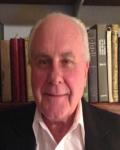
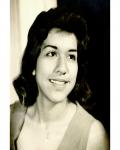
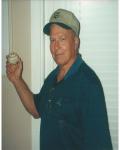
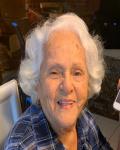
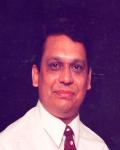
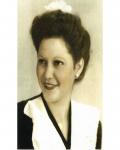
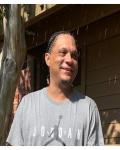

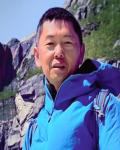
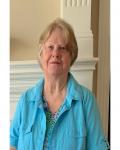


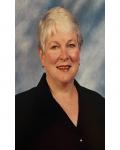


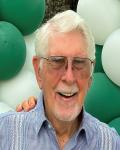


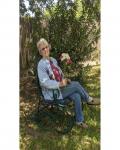
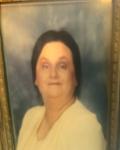


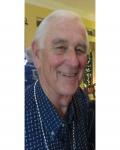
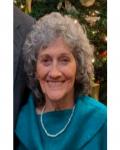





Guest Book